
Introduction
If you have a passion for fashion and a keen business sense, becoming a fashion buyer could be the perfect career path for you. This exciting profession merges creativity with commerce, allowing you to shape the future of fashion while making strategic business decisions. In this comprehensive guide, we’ll explore everything you need to know about how to become a fashion buyer, from the necessary skills and education to the practical steps you can take to enter and succeed in this competitive field.
What is a Fashion Buyer?
A fashion buyer is a vital player in the fashion industry, primarily responsible for making purchasing decisions that directly impact a retail store’s inventory. They attend fashion shows, meet with designers, and stay updated on the latest trends to determine what pieces will sell best during a specific season.
In other words, fashion buyers decide what clothes, shoes, or accessories will be stocked in a store. Their choices significantly influence the fashion trends available to consumers. This role requires a keen understanding of consumer behavior, fashion trends, and budget management.
Fashion buyers often work closely with merchandisers to ensure the products they purchase align with the brand’s strategy and target market. It’s a high-stakes role, as making the wrong buying decisions could result in unsold stock and financial losses for a store.
As a fashion buyer, you’ll also negotiate with suppliers and designers to get the best prices and ensure timely delivery of products. You’ll need to analyze sales data and predict future trends, making this role a blend of creative thinking and analytical skills.
The Skills Needed to Become a Successful Fashion Buyer
Becoming a successful fashion buyer requires a mix of hard and soft skills. Here are some of the most crucial ones:
- Trend Forecasting: As a fashion buyer, you need to predict what will be popular among consumers in the future. This involves staying updated with the latest fashion trends and understanding how they might appeal to your target market.
- Analytical Skills: You’ll be dealing with a lot of sales data, which you’ll need to analyze to make informed buying decisions. These skills can also help you forecast future trends.
- Negotiation Skills: Negotiating with suppliers for the best prices and delivery terms is a significant part of a fashion buyer’s job. Good negotiation skills can save your company money and ensure a steady supply of products.
- Budget Management: You’ll be working within a budget to purchase inventory, so it’s essential to know how to manage finances effectively.
- Communication Skills: As a fashion buyer, you’ll be liaising with various stakeholders, including suppliers, designers, store managers, and other members of your buying team. Clear and effective communication is crucial.
- Decision-making Skills: Fashion buyers often have to make tough decisions under pressure, such as choosing between different products or deciding how much stock to buy.
- Passion for Fashion: While not a skill per se, having a genuine love for fashion can drive you to stay updated with the latest trends and give you a better understanding of what consumers want.
Educational Requirements for Becoming a Fashion Buyer

While there are no strict educational requirements for becoming a fashion buyer, having a degree in a relevant field can certainly give you an edge. Here are some of the most common educational paths for individuals interested in this career:
- Bachelor’s Degree in Fashion Merchandising: This degree provides a comprehensive understanding of the fashion industry, including trend analysis, product development, consumer behavior, and retail management.
- Bachelor’s Degree in Business or Marketing: A business or marketing degree can equip you with the necessary analytical and strategic skills. You can learn about market research, consumer behavior, strategic planning, and financial management, all of which are useful for a fashion buyer.
- Master’s Degree in Fashion Buying: For those who want to further specialize, a master’s degree in fashion buying or a related field can provide advanced knowledge and skills.
In addition to these formal education paths, there are also numerous online courses and certifications available that focus on fashion buying. These can be a great way to gain specialized knowledge and show potential employers your commitment to this career path.
Remember, while having a relevant degree can be beneficial, it is not the only way to become a fashion buyer. Many successful fashion buyers have worked their way up from entry-level positions, gaining valuable experience along the way.
Exploring Different Fashion Courses
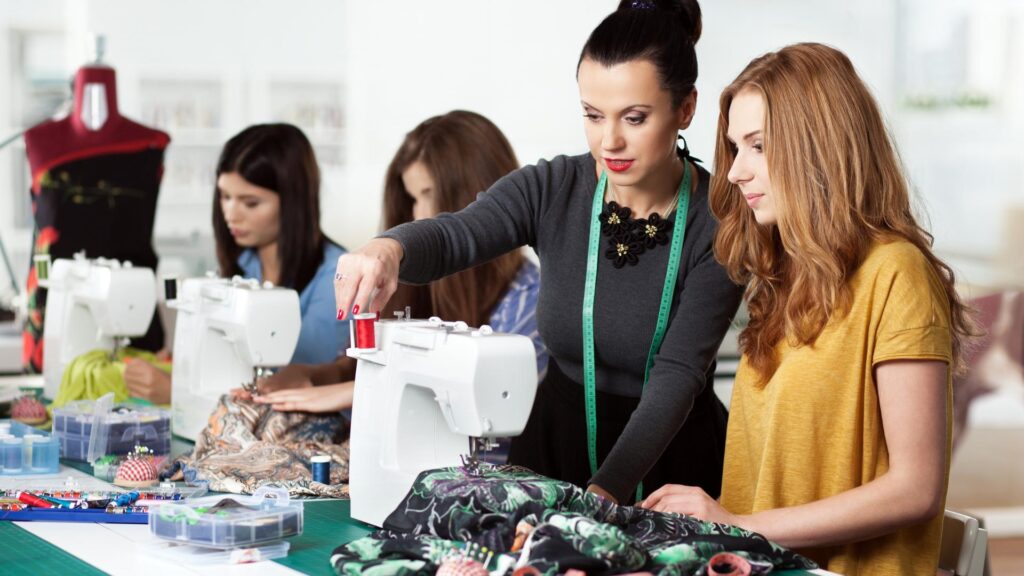
In the dynamic world of fashion, having a solid educational background can open up a plethora of opportunities. For aspiring fashion buyers, enrolling in fashion courses can provide them with the essential knowledge and skills needed to excel in this competitive industry. This article will explore various fashion courses that can prove beneficial for those looking to make their mark as fashion buyers.
Fashion Merchandising
One of the most relevant courses for prospective fashion buyers is Fashion Merchandising. This program offers a comprehensive understanding of the fashion business from a retail perspective. Students learn about trend forecasting, consumer behavior, product development, and retail management. They also study how to strategize and implement effective buying plans, which is a crucial skill for fashion buyers. Schools like the Fashion Institute of Technology and Parsons School of Design offer reputable programs in Fashion Merchandising.
Fashion Marketing
Another important course is Fashion Marketing. Here, students learn how to create and manage marketing campaigns for fashion brands. This includes understanding target audiences, creating compelling marketing messages, and choosing the right channels to reach consumers. As fashion buyers need to understand what appeals to their customers, a background in fashion marketing can be incredibly advantageous.
Business Management
A degree in Business Management can also be beneficial for aspiring fashion buyers. This course equips students with a solid understanding of business operations, strategic planning, and financial management – all critical skills for managing budgets and making informed buying decisions. Many universities worldwide offer Business Management programs, often with the option to specialize in fashion or retail.
Textile and Apparel Management
Understanding fabrics, their quality, and how they’re produced is another key aspect of a fashion buyer’s job. A course in Textile and Apparel Management can provide this knowledge. It covers everything from the history and production of various textiles to quality control and sustainability in textile manufacturing. This course can be particularly useful for buyers dealing with clothing and accessories.
Fashion Design
While not a direct requirement for fashion buyers, understanding the basics of Fashion Design can be beneficial. This course gives students an insight into the creative process behind the clothes, understanding trends, and translating them into designs. It helps develop a keen eye for detail and a deep appreciation for the art of fashion – both valuable assets for fashion buyers.
Online Courses and Certifications
In addition to traditional degree programs, there are also numerous online courses and certifications that focus on fashion buying. Websites like Coursera, Udemy, and Skillshare offer courses on topics like retail buying, fashion trend forecasting, and sustainable fashion. These courses offer flexibility and can be a great way to gain specialized knowledge without committing to a full-time degree program.
Taking these courses can provide a strong foundation for a career in fashion buying. However, it’s important to remember that education is just one piece of the puzzle. Real-world experience, passion for fashion, and a keen understanding of consumer behavior are equally, if not more, important for succeeding in this field.
Gaining Experience in Fashion Buying
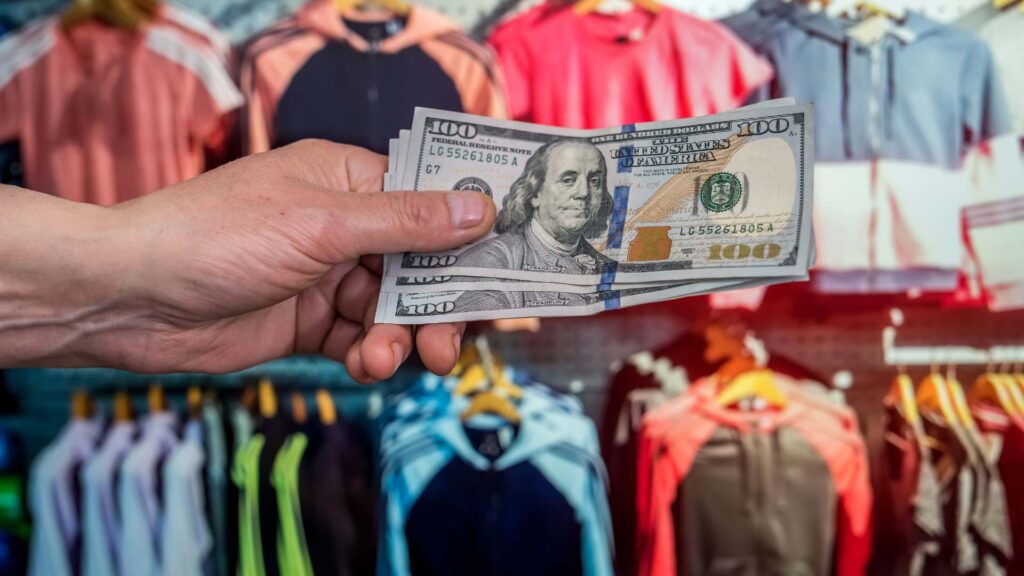
Breaking into the world of fashion buying requires more than just a passion for style and an eye for trends. One of the key components to starting a successful career in this field is gaining practical experience in fashion buying. This hands-on experience can provide you with invaluable insights into the industry, help you develop necessary skills, and establish important connections.
The Importance of Internships and Entry-Level Jobs
Internships and entry-level jobs play a crucial role in gaining experience in fashion buying. They serve as your first step into the professional world, providing you with a real-life perspective of what it takes to be a fashion buyer.
Internships are typically short-term work experiences offered by companies to students or career-changers. They offer a unique opportunity to learn about the fashion industry from the inside, understand the different roles and responsibilities within a buying team, and gain exposure to various aspects of the job, such as trend analysis, supplier negotiation, and budget management.
Entry-level jobs, on the other hand, are full-time positions that require little to no previous experience. Positions like retail sales associate or buying assistant can provide valuable experience in understanding consumer behavior, managing inventory, and assisting in buying decisions.
Both internships and entry-level jobs are excellent ways to gain practical experience, learn from professionals in the field, and build a network within the industry. They also serve as stepping stones for higher-level positions in fashion buying.
Tips on Where and How to Find Relevant Experience
Finding relevant experience in fashion buying requires a proactive approach. Here are some tips to help you get started:
1. Leverage Online Job Platforms: Websites like Indeed, LinkedIn, and Glassdoor often have listings for internships and entry-level jobs in the fashion industry. Regularly checking these platforms and setting up job alerts can help you stay updated on new opportunities.
2. Connect with Your University’s Career Center: If you’re a student, your university’s career center can be a valuable resource. They often have information on internships and job openings, and they can also provide guidance on resume writing and interview preparation.
3. Network: Attend industry events, fashion shows, and seminars to meet professionals in the field. Networking can open doors to opportunities that may not be advertised publicly.
4. Volunteer: Volunteering at fashion events or charity shops can also provide valuable experience. While these may not be directly related to buying, they can help you understand the industry better and demonstrate your commitment to a career in fashion.
5. Reach Out Directly: If you have a particular brand or retailer in mind, don’t hesitate to reach out to them directly. Even if they don’t have any current openings, they might keep your resume on file for future opportunities.
Building a Network in the Fashion Industry
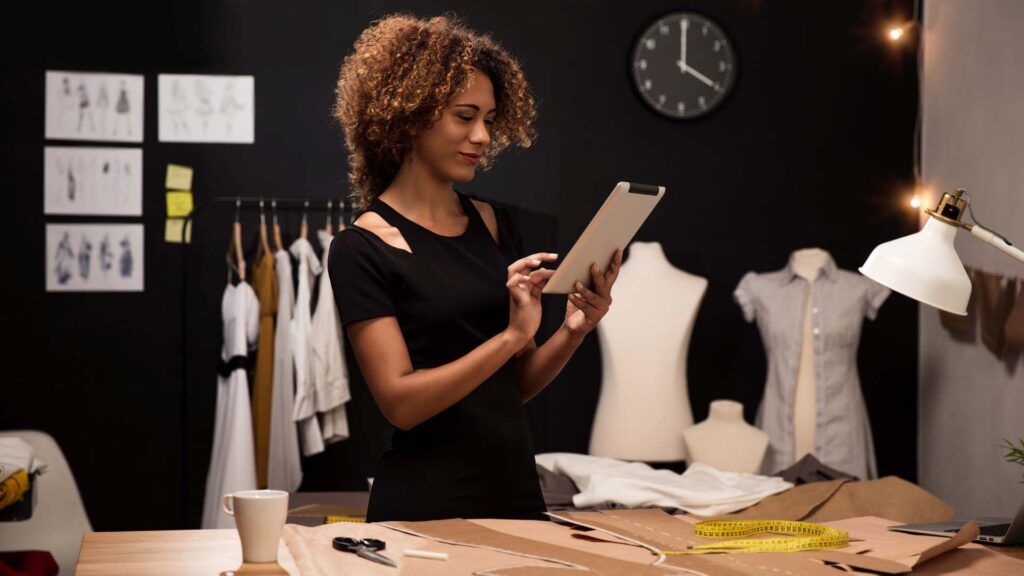
The fashion industry is a vibrant and ever-evolving world where creativity, business, and relationships intertwine. Amidst this dynamic environment, building a strong professional network can be instrumental in fostering your career growth. A solid network can open doors to new opportunities, provide valuable guidance, and offer support during challenging times. Here’s how you can build and nurture your network in the fashion industry.
Importance of Networking in Fashion
Whether you’re an aspiring designer, a budding fashion buyer, or a hopeful boutique owner, networking plays a vital role in your professional journey. It can help you:
- Discover Opportunities: Many job openings in the fashion industry are filled through word-of-mouth referrals. A well-connected network can bring these opportunities to your attention.
- Gain Industry Insights: Conversations with experienced professionals can provide insights into industry trends, challenges, and best practices that you might not find in textbooks or online resources.
- Find Mentors: Building relationships with senior professionals can lead to mentorship opportunities. Mentors can offer valuable advice, guide your career development, and introduce you to influential people in the industry.
- Build Your Brand: Networking allows you to showcase your skills, knowledge, and passion to others in the industry. This can enhance your professional reputation and personal brand.
Strategies for Building Your Network
Here are some strategies to help you build your network in the fashion industry:
Attend Industry Events: Fashion weeks, trade shows, and industry parties are excellent venues to meet industry professionals. Make it a point to attend these events and engage in meaningful conversations.
Join Professional Associations: Associations like the Council of Fashion Designers of America (CFDA) or the American Apparel & Footwear Association (AAFA) provide networking opportunities through seminars, workshops, and member events.
Leverage Social Media: Platforms like LinkedIn, Instagram, and Twitter are powerful networking tools. Follow and engage with industry leaders, brands, and influencers. Share your work, thoughts, and insights to attract attention and start conversations.
Volunteer or Intern: Volunteering at fashion events or interning at fashion companies can provide direct exposure to industry professionals. It’s a great way to demonstrate your skills and commitment.
Network Beyond Fashion: Don’t limit your networking efforts to the fashion industry alone. Professionals from fields like marketing, finance, or technology can provide diverse perspectives and opportunities.
Nurturing Your Network
Building your network is just the first step; nurturing those relationships is equally important. Keep in touch with your contacts through emails or social media. Congratulate them on their successes and offer help when they need it. Remember, networking is not just about taking; it’s about giving and building reciprocal relationships.
Climbing the Ladder: From Fashion Enthusiast to Fashion Buyer
The journey from being a fashion enthusiast to becoming a successful fashion buyer can be thrilling and challenging. It requires more than just a deep love for fashion; it demands industry knowledge, practical experience, and a keen understanding of consumer behavior and market trends. This article offers a step-by-step guide on how to progress in the fashion industry, drawing inspiration from real-life examples and case studies of successful fashion buyers.
Step 1: Get Educated
A solid understanding of fashion and business is the first step towards becoming a fashion buyer. Consider pursuing a degree or certificate in fashion merchandising, business, or a related field. Courses in these programs typically cover topics such as fashion history, trend forecasting, consumer behavior, and retail management.
Step 2: Gain Experience
Experience is essential in the fashion industry. Internships and entry-level jobs provide hands-on experience and expose you to the workings of the industry. These opportunities allow you to apply what you’ve learned in the classroom, gain practical skills, and understand the day-to-day responsibilities of a fashion buyer.
Step 3: Build a Network
Networking can be instrumental in advancing your career. Attend industry events, join professional associations, and connect with industry professionals on social media platforms. Building relationships can lead to job opportunities, mentorships, and valuable industry insights.
Step 4: Stay Informed
Fashion is an ever-evolving industry. Keeping up-to-date with the latest trends, market shifts, and industry news is crucial. Regularly read fashion magazines, attend fashion shows, and follow influential people in the industry.
Step 5: Advance Your Career
With education, experience, and a strong network, you’ll be well-equipped to advance in your career. Seek higher-level positions, take on more responsibilities, and continuously strive to hone your skills and knowledge.
Now, let’s look at some successful fashion buyers who have climbed the ladder in the industry:
Vanessa Denza: A prominent figure in the international fashion scene, Vanessa Denza started her career as a buyer for a London-based boutique. Her keen eye for talent and understanding of market trends led her to discover and support many now-famous designers. Her long and illustrious career is a testament to the importance of experience and networking in the industry.
Ganni’s Fashion Buyers: The Danish brand Ganni, which began as a niche cashmere label, has become a global sensation, thanks in part to its savvy fashion buyers. They’ve mastered the art of identifying what consumers want, resulting in collections that consistently resonate with their target audience.
Keeping Up with Fashion Trends as a Fashion Buyer
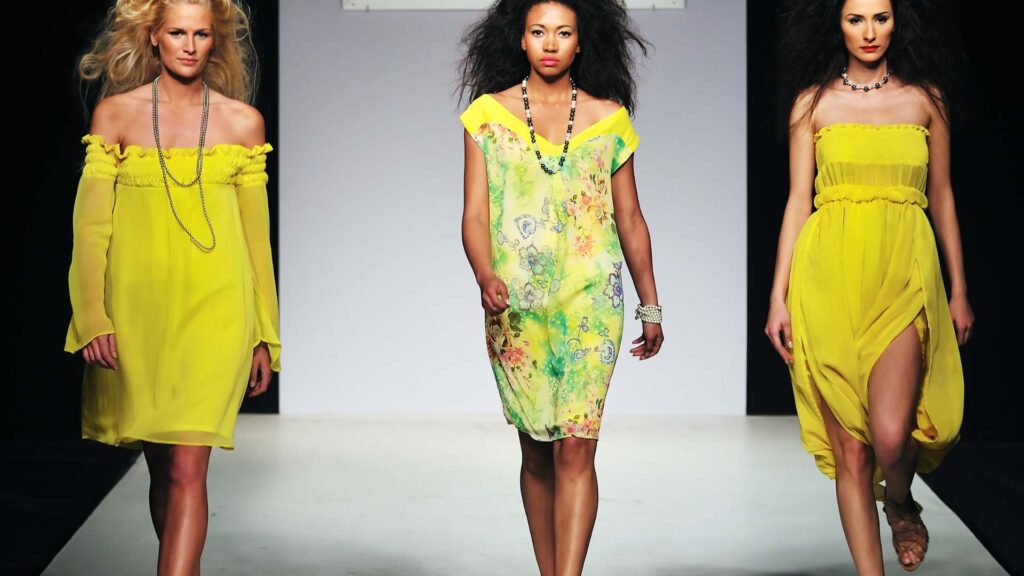
In the dynamic world of fashion, trends change at a dizzying pace. For a fashion buyer, staying updated with these trends is not just a hobby but a critical aspect of their job. Understanding the latest fashion trends enables buyers to make informed decisions about what to stock, ensuring their offerings remain relevant and appealing to customers.
The Importance of Staying Updated with the Latest Fashion Trends
Fashion trends reflect the evolving tastes, preferences, and lifestyle of consumers. They act as a guide for what consumers will likely want to wear in the upcoming seasons. By following these trends, fashion buyers can stay aware and ensure their selections align with consumer demand.
Being “trendy” also impacts a brand’s image and reputation. Outdated collections can make even the most established brand seem obsolete, while a well-curated, trendy collection can enhance a brand’s appeal.
Moreover, each fashion trend is a response to the trend that preceded it. Understanding this cyclical nature of fashion trends can help fashion buyers anticipate future shifts in the industry.
Finally, keeping up with new trends fosters a healthy and competitive environment, inspiring creativity and innovation.
Resources and Methods to Keep Up with Trends
Keeping up with fashion trends requires a proactive approach. Here are some resources and methods to help you stay ahead:
Fashion Magazines and Blogs: Publications like Vogue, Elle, and Harper’s Bazaar, as well as fashion blogs, provide insights into current trends and predictions for upcoming ones.
Fashion Shows: Attending fashion weeks in New York, Paris, Milan, or London can offer a first-hand look at the latest designs and trends.
Social Media: Platforms like Instagram and Pinterest are great places to spot emerging trends. Follow influential designers, stylists, and fashion influencers.
Consumer Behavior Research: Understanding what your customers are buying can also guide you towards trends. Analyze sales data, customer feedback, and online reviews.
Networking: Engage with other industry professionals. They can provide unique insights and perspectives on what’s trending.
Online Forums and Q&A Platforms: Websites like Quora have numerous discussions about fashion trends.
The Challenges of Being a Fashion Buyer and How to Overcome Them
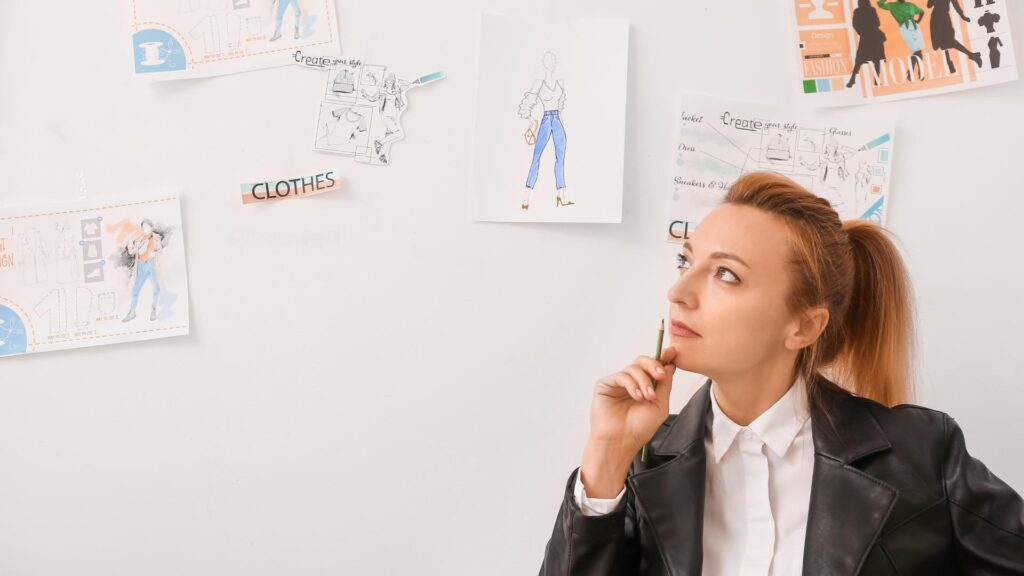
A career as a fashion buyer can be exciting and rewarding, but it’s not without its challenges. From predicting consumer behavior to managing budgets, fashion buyers often have to navigate complex issues. Understanding these challenges and how to overcome them can equip you to excel in this dynamic industry.
Challenge 1: Predicting Trends
Fashion trends are notoriously fickle, making them difficult to predict. Buyers need to anticipate what will be popular several months ahead to ensure their selections are on-trend when they hit the shelves.
Solution: Regularly read fashion magazines, attend fashion shows, and follow influential fashion figures on social media. Leverage data analytics to understand past sales trends and customer behavior.
Challenge 2: Managing Budgets
Fashion buyers must manage budgets effectively to maximize profitability. This involves making tough decisions about what to stock and in what quantities.
Solution: Develop strong financial management skills. Understand the cost of goods, retail pricing strategies, and the financial impact of markdowns. Also, learn to negotiate with suppliers to get the best prices.
Challenge 3: Dealing with Pressure
The role of a fashion buyer can be high-pressure, with tight deadlines and the constant need to make critical decisions that can significantly impact a company’s bottom line.
Solution: Good time management and stress management techniques are crucial. Prioritize tasks effectively, learn to delegate where possible, and take care of your mental health through activities like meditation or exercise.
Challenge 4: Building Relationships with Suppliers
Establishing and maintaining good relationships with suppliers is essential for a fashion buyer. These relationships can affect everything from the quality of goods to delivery times.
Solution: Excellent communication and negotiation skills are key. Treat suppliers as partners rather than adversaries. Regularly provide feedback and show appreciation for their work.
Challenge 5: Keeping Up with Industry Changes
The fashion industry is continually evolving, with new technologies, sustainability concerns, and shifts in consumer behavior.
Solution: Stay informed about industry news and trends. Attend industry events, participate in relevant training programs, and network with other professionals in the field.
Being a fashion buyer can be a challenging career. However, these challenges are not insurmountable. With the right skills, knowledge, and mindset, you can navigate these hurdles successfully and thrive in this exciting industry
- Conclusion: Your Path to Becoming a Fashion Buyer
- Embarking on the journey to becoming a fashion buyer may seem daunting, but it’s an exciting career path filled with endless possibilities. It’s a profession that combines creativity with business acumen, and passion for fashion with strategic decision-making.
- Remember, becoming a successful fashion buyer involves more than just a love for fashion. It requires a mix of education, experience, and a keen understanding of market trends and consumer behavior.
- Here’s a quick recap of the steps:
- Get Educated: Gain a strong foundation in fashion and business through relevant degree programs or courses.
- Gain Experience: Start with internships or entry-level jobs in fashion retail to gain hands-on experience.
- Build a Network: Establish relationships with industry professionals through networking events and social media platforms.
- Stay Informed: Regularly update yourself with the latest fashion trends and industry news.
- Advance Your Career: As you gain experience and knowledge, look for opportunities to move up the ladder.
- While challenges will inevitably arise, they are not insurmountable. With resilience, adaptability, and a relentless pursuit of knowledge, you can overcome these hurdles and thrive in this dynamic industry.
- Don’t be discouraged by the complexity or competitiveness of the fashion world. Instead, see it as a vibrant industry where your passion for fashion can truly shine. Whether you’re spotting the next big trend, negotiating with suppliers, or analyzing sales data, every day as a fashion buyer brings new challenges and opportunities.
- So, if you’re drawn to the ever-evolving world of fashion and have a knack for business, becoming a fashion buyer could be your calling. Embrace the journey, stay committed, and one day, you could be the driving force behind a fashion brand’s success.
FAQs
1. What is the basic educational requirement to become a fashion buyer?
While it’s possible to become a fashion buyer without a degree, many employers prefer candidates with a bachelor’s degree in fashion merchandising, business, or related fields.
2. What are the steps to becoming a fashion buyer?
The typical path includes earning a high school diploma, obtaining a relevant bachelor’s degree, gaining knowledge of the fashion industry, and acquiring experience through internships or entry-level jobs.
3. What skills are necessary for a fashion buyer?
A fashion buyer needs to have strong analytical skills, a deep understanding of consumer behavior, excellent negotiation skills, and creativity to effectively forecast trends.
4. What is the career progression for a fashion buyer?
The usual path is to start as an assistant buyer, then move up to an associate buyer, and finally a buyer.
5. What does a fashion buyer do?
A fashion buyer makes purchasing decisions for a clothing retailer. They select which products to stock based on current fashion trends and customer demand.
6. Are there alternative degrees that can lead to becoming a fashion buyer?
Yes, degrees in economics, business, finance, retail, or marketing can also be beneficial for aspiring fashion buyers.
7. Can I become a fashion buyer with a certificate?
Yes, a certificate in fashion buying can be a stepping stone towards becoming a fashion buyer. However, hands-on experience in the industry is also crucial.
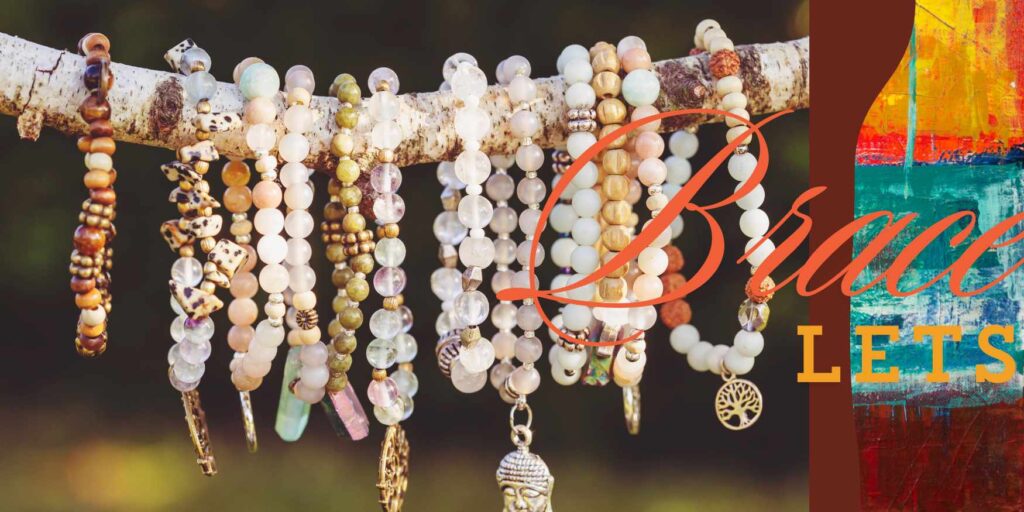
Choosing the Perfect Fashion Bracelets for Women




